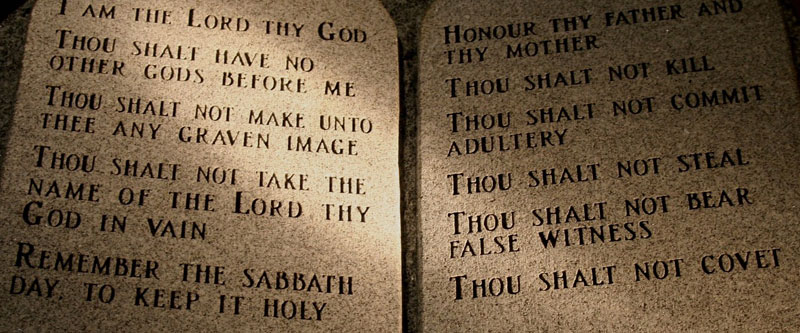
Last post we looked at the Sabbath as one of the three creation ordinances God established to give structure to our relationships with him, his world, and our fellow man. These ordinances are simply ways in which man is to imitate God. Work, marriage and rest are all done by God and as his image-bearers, we should do them as well.
These ordinances were established prior to the fall into sin, and form a perpetual order for mankind. They make up part of the core of man’s obligations to God. There are other obligations God places on his creation as well as part of his relationship with the world. These relationships between God and man in their different forms are called God’s covenants in Scripture. Prior to sin, God’s covenant with man was defined along the lines of his obedience. Man was to live before the Lord in perfect obedience, and in response God would graciously give life (Cf. Gen. 2:17). The initial relationship between God and man is typically called the Covenant of Works, or Life. However, after the fall in Gen. 3:8 man dies both physically and spiritually. His thoughts, motivations and desires are all corrupted by sin.
Man can no longer meet the righteous requirements of the obligations that go along with God’s covenant. However, God in his grace inaugurates another covenant: the Covenant of Grace. In this covenant, though man is unable to fulfill and obey, God sends the seed of the woman to be the mediator between God and man. This mediator is the Christ who lives in perfect obedience to God on our behalf. He came not to abolish the law and the prophets, but to fulfill them (Mt. 5:17). His perfect righteousness is imputed to us that we would have life. If Christ had disobeyed he would not have been able to mediate between God and man. So Christ’s obedience does matter. God’s obligations for man never change, because they reflect his unchangeable character. These obligations make up God’s moral law.
God’s moral law is distinct from his other laws. When God summarizes the obligations of the covenant he gives to Israel, he summarizes them in the Ten Commandments (Cf. Deut. 4:13). We have already seen that God’s obligations do not change between covenants administrations. That means in all ages, the Ten Commandments are binding. We can easily see this distinction if we try and apply the Decalogue to pre-fall Eden.
If Adam, in Eden, would have decided to make an idol, he would have sinned. If Adam, in Eden, would have murdered or would have stolen, he would have sinned. However, if Adam failed to set up cities of refuge in Eden, he would not have sinned. The moral law, summarized in the Ten Commandments, was binding for him. The other laws are specific applications of this moral law to the people of Israel, or to the world as a whole now stained with sin.
Now here comes the point of this whole exercise. Since the Sabbath Day is part of the Ten Commandments it is part of God’s perpetual obligations for man and therefore is applicable for us as well. Exactly how that plays itself out in today’s world I leave for the next article.









